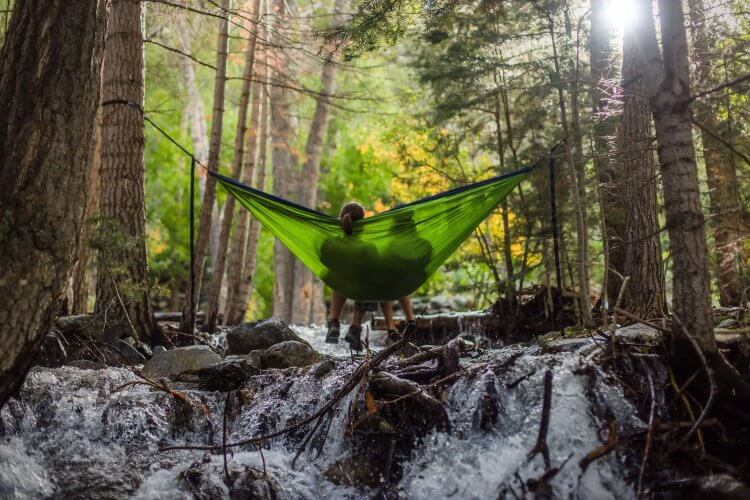11 Ways to Be a Sustainable Traveler
Our planet is important to you. So much so, that you’re desperate to see as many corners of it as you can. On the other hand, you’re also desperate to do your bit for the environment and make sure that the amazing places you’re enjoying are still around for future generations to enjoy, so you’re worried about that carbon footprint of yours.
So what’s an environmentally-minded travel-addict to do? Hang up your walking boots, hide away your passport, and resign yourself to a life without travel? Never!

Travelling without creating a vast carbon footprint can seem like an impossible task, but it needn’t be. There are countless ways you can reduce your impact.
Read on for plenty of tips, some simple and some requiring a bit more commitment, for ways to keep your impact to a minimum on the road. I’ll also share a few tips for gear that will make your trip more sustainable.
Ways to Minimise Your Impact
- Refuse the Straw
Have you seen that video of the turtle having a straw pulled out of its nose? I know, I can’t get it out of my head either.
When you’re at a bar or restaurant, tell the waiter or bartender when you order your drink that you don’t need a straw, just in case. Every little helps.
- Avoid the Disposable
This is much harder in some countries than in others, as eating with disposable cutlery, drinking out of plastic cups and eating off Styrofoam trays is standard in lots of places.
In Mexico, for example, you’ll often find yourself being served your food on disposable trays even when you sit down at a proper restaurant, and all the street food you eat will normally involve some kind of single-use product. And, sadly, there’s evidence of this plastic-epidemic even in the country’s most beautiful natural environments.
Deal with this by coming prepared with some of the items we recommend in the eco-friendly gear list.
Bring a tote bag with you that you can pop any purchases into, refusing the plastic bag. A good way to cut down on plastic water bottles in the tropics is drinking plenty of green coconuts (without the straw!) which are amazingly hydrating.
- Keep Your Consumption of Animal Products to a Minimum
If you’re not at all familiar with the vegan movement, you might not be aware that the animal product industry produces more greenhouse gases than every single form of transport on the planet, including all cars and planes. Yes, really! Meat and dairy products also use far more water than vegetables do.

If you’re feeling guilty about taking a flight to the other side of the world because of your carbon footprint, you can offset it by simply reducing your consumption of animal products whenever possible, both when you’re at home and when you’re traveling.
Of course, this won’t always be that easy in certain places, but vegetarian and vegan food is more and more widely available, and ever-more delicious! Lots of cultures, especially in Asia, have plenty naturally or accidentally vegan dishes on offer, so keep your eyes open for opportunities to eat green!
- Learn the Language
Travelling is always far easier in a country where you know how to communicate, but it’s not just stress that you’ll save on if you can speak a bit of the local lingo.
If you know the words for the items you want to avoid, and can say, for example, ‘I don’t need a straw’, then you can be much surer that you won’t be given one!
If your language skills are good enough, you might then even end up having a conversation about why you’re avoiding single-use products, perhaps with someone who had never considered the issue before.
Whilst you should always avoid being or seeming patronizing at all costs, it can’t hurt to discuss your beliefs with other people, and it could do an awful lot of good to sow the seed of sustainability in someone’s mind.
- Slow and Steady Wins the Race
Relax, you’re on holiday!
One of the keys to sustainable traveling is not to try and do too much in too little time. Don’t plan to cram ten countries into your month long trip if that is going to involve catching a flight every other day.
You won’t have a chance to relax and enjoy yourself, and all those flights will rack up your carbon footprint extremely quickly.
Take it slowly. Rent a bike. Take the bus. Take the train. Sleep on a night bus (saving money as well as CO2). Make your priority getting the very most out of every destination you go to rather than cramming lots of places in and theoretically ticking everything off your list, but not really seeing anything or anywhere.
- Give in the Best Way Possible
Pretty much anywhere you go these days, you’ll find that most children know how to say ‘give me sweet’, or ‘give me money’ in English, and although it can be heartbreaking seeing children living in poverty, handing out sweets, books or pencils can encourage a culture of dependency.
It’s better to give your money, or any goods you’ve brought along with you, to responsible, local organizations that are working on meaningful and well-planned social projects that will really make a difference to those kids’ lives.
7. Support the Local Economy
Don’t be seduced by the cheaper, flimsier versions, versions of the true local crafts made in your destination. Pretty much everywhere you go there will be shops selling imitations of local crafts that have actually been shipped in from China. Unless you’re in China.

You can find exactly the same elephant-covered clothes, wall-hangings and ornaments everywhere from India to Marrakesh to southern Spain, so what seems like an authentic souvenir could actually be anything but.
Where possible, try and buy directly from the artisan themselves, meaning you cut out the middleman and they get more money for their handiwork, supporting the local culture and economy.
8. Research Any Tour Operators
Whilst it’s always good to travel independently as much as you can, for some trips it makes far more sense to take a tour, and sometimes it’s even compulsory if you want to visit a certain spot. Before you hand over your money and commit yourself, ask them a couple of questions to make sure that sustainability is a priority for them.
Ask them what their environmentally-friendly practices are if they employ local guides on their trips, and how what they do helps to protect the local culture or wildlife. Ask them how many people will be in your tour group, as smaller groups make less of an impact.
If they can’t answer your questions, move onto the next operator, as there are always plenty of outfits competing for your business, and there’s bound to be a more sustainable option available to you.
9. Never Buy Wildlife Products
Yes, those seashells might be beautiful and would look amazing on your windowsill, but they aren’t souvenirs to be taken home, so don’t buy them. And don’t pick them up off the beach yourself, either.
People removing seashells from their natural environment throws off the delicate balance that exists in every ecosystem, already so endangered by global warming.
Similarly, avoid anything made of fur, ivory, or ideally anything that comes from an animal full-stop. Essentially, if in doubt about where something comes from and if it’s legitimate, it’s best avoided.
- Enjoy the Local Booze
This one shouldn’t be too much of a trial! Rather than drinking the big beer brands, you’re used to at home, sample the local stuff to keep those beer-miles low.

Make sure you line your stomach with plenty of the local food, enjoying traditional dishes preferably made from produce grown in the country you’re visiting, rather than international imports. As much as you can, avoid lining the pockets of any of the big chains. We all do enough of that at home.
- Don’t Go Off the Beaten Track
I mean this in a literal sense, not a figurative one. Figuratively, it’s generally a great idea to take the path less travelled and try and avoid the standard tourist trail, spending your money in places that are a bit more out of the way and less commercial.
Literally, however, when you’re following a marked track on a hike, stick to it to avoid trampling on endangered plants and keep your distance from any wild animals you spot.
Use your common sense and respect the world around you, and your trip will be far more rewarding.